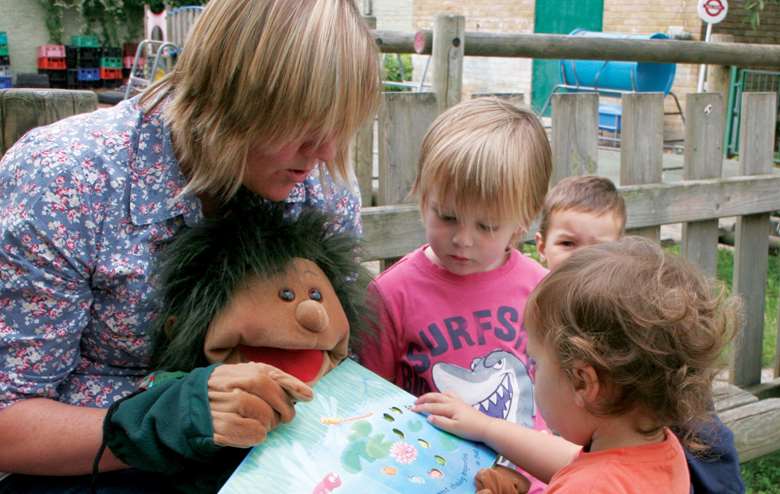Prioritise free childcare for disadvantaged children, say peers
Joe Lepper
Tuesday, February 24, 2015
A House of Lords Committee is calling for a radical rethink in childcare funding to ensure disadvantaged children are prioritised.

The House of Lords Committee on Affordable Childcare wants the next government to use more of the forecasted £6.4bn early education and childcare budget on those most in need.
The committee also called for an assurance that by 2020 all disadvantaged two-year-olds have access to free early education in settings that achieve the highest Ofsted ratings.
Committee chairman Lord Sutherland of Houndwood, said: “The evidence clearly shows that high-quality early education has a crucial role to play in helping disadvantaged children to reach their full potential. For this group in particular the impact can be substantial.
“We are not talking about increasing budgets. We are talking about a re-prioritisation of current spending to ensure that it targets those children who are likely to benefit the most.”
A quarter of disadvantaged two-year-olds are still not accessing their free entitlement in a setting that is rated "good" or "outstanding" by Ofsted, the committee heard
The underfunding of free early education places also needs to be addressed across early years settings, the committee said. It is concerned that too often private, voluntary and independent (PVI) early years providers in disadvantaged areas are struggling to survive and are having to charge parents more due to the low rate of the current free hours allocation.
It is calling for a review into how councils make this allocation to ensure settings in the poorest areas are prioritised.
Lord Sutherland added: “The PVI sector employs far fewer graduates than the maintained sector. One reason for this is that settings in the PVI sector are not paid at a level to enable them to employ graduates. The PVI sector provides the majority of free early education places to three-year-olds and yet it is paid a much lower rate, on average, than maintained settings.”
“We cannot continue with a situation where the government's flagship early education policy is underfunded to such an extent, with such far-reaching effects for children and families.”
The National Day Nurseries Association (NDNA) welcomed a focus on disadvantaged children but says that levels of funding for all children needs to be reviewed.
NDNA chief executive, Purnima Tanuku said: “Our own research shows that the money nurseries currently receive to deliver free hours falls short by an average of £800 per child per year for each funded three- to four-year-old place and £700 for each two-year-old place.
“This is the biggest single reason that nursery fees are rising for some paying parents who end up subsidising the free places.”
Also being called for is investment in home learning programmes that can be delivered alongside early education in nursery and childminder settings.
Dr Mary Bousted, general secretary of the Association of Teachers and Lecturers, said: “Our members are concerned at the increasing numbers of children starting school with little spoken language and other social skills. Ensuring money is best spent to support these children is of utmost importance.”
Last year, analysis by the Pre-school Learning Alliance suggested there is a £200m funding gap between the amount given to early years providers fund free childcare places and the cost of providing them.
Alliance chief executive Neil Leitch said: “At the moment, the government is demanding a first-rate service on second-rate funding and as a result, more and more providers are being forced to raise the cost of paid-for childcare hours to stay afloat.
"Neither providers nor parents should have to carry the financial burden of a scheme that the government claims to be adequately funding, and the Department for Education should never have allowed this situation to go on for so long.”
The report follows a Liberal Democrat manifesto pledge by Deputy Prime Minister Nick Clegg to extend the free early years entitlement to working parents.
He said the Liberal Democrats plan to extend the 15 hours of free care for 38 weeks a year to all two-year-olds and for children aged between nine months and two years where both parents work, or one parent works if in a single-parent family.




